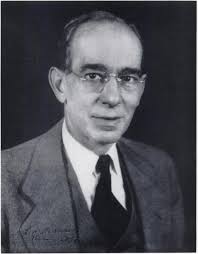
New Windsor is a town in Orange County, New York, United States. The population was 27,805 at the 2020 census. It is located on the eastern side of the county and is adjacent to the Hudson River and the City of Newburgh.

Newburgh is a town in Orange County, New York, United States. It forms part of the Poughkeepsie—Newburgh—Middletown metropolitan area, which is a part of the New York megacity, and is a suburban satellite of the urbanized city of Newburgh. The city of Newburgh was a part of the town prior to 1865. New York Stewart International Airport is partially located within the township, and much of the land into which it could have been expanded has been turned into Stewart State Forest.

Benjamin Barker Odell Jr. was an American businessman and politician who served as the 34th governor of New York from 1901 to 1904.

Calvert Vaux FAIA was an English-American architect and landscape designer, best known as the co-designer, along with his protégé and junior partner Frederick Law Olmsted, of what would become New York City's Central Park.

Theophilus Howard, 2nd Earl of Suffolk, was an English nobleman and politician.

William Rudolf O'Donovan was an American sculptor.

Ballyhaise is a village in County Cavan, Ireland. It is situated some 7 km (4.3 mi) north-northeast of Cavan. It is approximately a 15-minute drive or 11 km via the N54 to the border with County Fermanagh in Northern Ireland. The River Annalee flows near the village.

Colonel Brockhill Newburgh was an Irish politician.
Richard Pockrich, Poekrich, or Puckeridge, was an Irish musician, and was the inventor of the glass harp around 1741.
Richard Pockrich was an Irish landowner, military commander and Member of Parliament.
George Leslie Montgomery was an Irish politician.

Newburgh Priory is a Grade 1 listed Tudor building near Coxwold, North Yorkshire, England.

Dilston Castle is an unglazed 15th-century uninhabited tower house at Dilston in the parish of Corbridge, Northumberland, England. Both are scheduled monuments and Grade I listed buildings giving them recognition for historic and architectural value as well protection from demolition.
Arthur Newburgh Haire-Forster JP was Dean of Clogher from 1911 until his death. He was High Sheriff of Monaghan in 1898.
Charlotte Maria Radclyffe, 3rd Countess of Newburgh or Charlotte, Countess of Derwentwater was a Scottish Jacobite sympathiser. A suo jure Countess, she was forced into a marriage that gave her earldom to her new husband.

Louis Harry Newburgh was an American physician and medical educator. He spent most of his career teaching and researching at the University of Michigan. Newburgh was involved in many early experiments and discoveries with obesity and renal diseases. He made significant contributions to the field with his level of meticulousness and detail to the scientific method.

Lee Woodward Zeigler, also known as Albert Lee Zeigler, was an American artist who began his career as an illustrator and later worked as a muralist.
George Canning was an Irish writer and father of British Prime Minister, George Canning.












